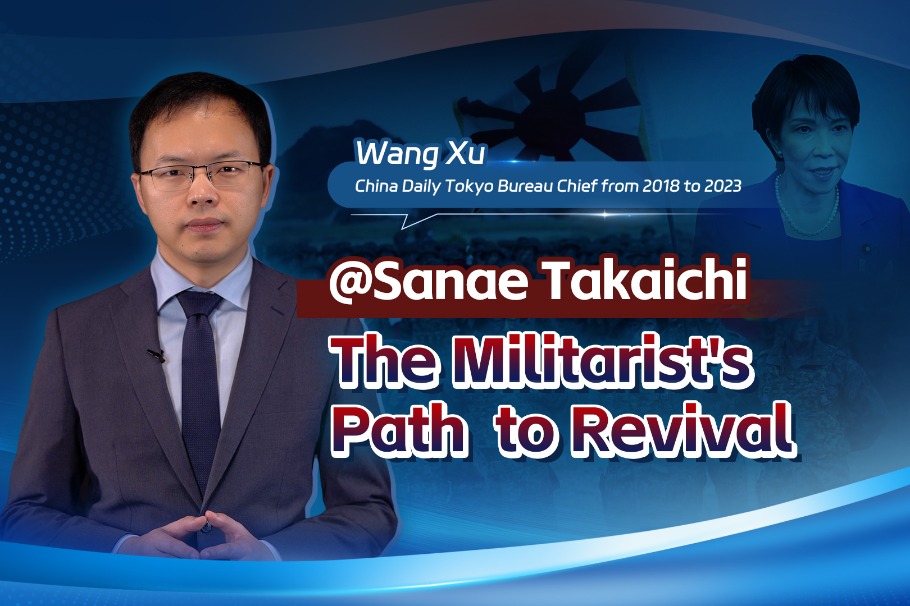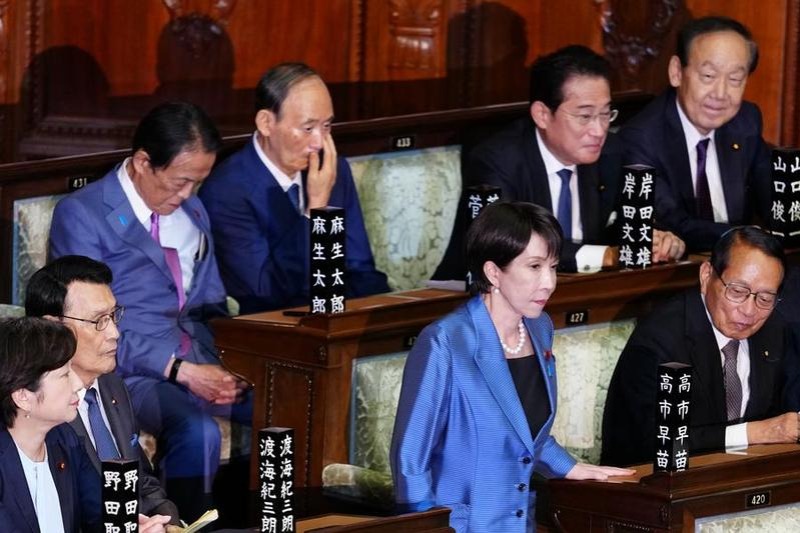Offensive goals of US-Japan alliance threaten Asia-Pacific


The joint statement issued after the US-Japan Security Consultative Committee meeting on Jan 7 indicates the two sides' resolve to respond jointly to the rapidly changing security environment in the region, so as to "maintain peace and stability" in East Asia and across the Asia-Pacific region.
This year's US-Japan security committee meeting, attended by both countries' heads of foreign and defense departments, repeated the rhetoric that certain countries in the region are sharpening their military and strategic edge and thus threatening the rule-based world order.
In particular, the joint statement reiterated that they will build deterrence to the threats to "Senkaku Islands" (as the Japanese call China's Diaoyu Islands). They also claimed the developments in China's Xinjiang Uygur autonomous region and Hong Kong threaten human rights, so forces from outside the Asia-Pacific need to get involved in the region to uphold peace and human rights.
It is essential indeed to protect the rule-based world order. And all members of the international community should listen to each other and help preserve peace and stability in Asia-Pacific and beyond.
But who is challenging the rules-based world order?
The world order since the end of the World War II has been defined by the United Nations Charter. And yet, going against the order, the US invaded a sovereign country, Iraq, in 2003, toppling its government and devastating the country, without any endorsement from the UN and despite Iraq not doing any harm to the US.
Such military actions have been directly responsible for the turmoil in the Middle East and beyond over the past two decades, but the US has not held those responsible for launching such offensives, or paid any reparation to any war victim.
As for China, in 1971 the United Nations restored the legal seat of the People's Republic of China in the UN system. In 1979, the US established diplomatic relations with the PRC, recognizing the PRC government as the sole legal government of China, and acknowledging the Chinese position that there is but one China and Taiwan is part of China. And in the joint communique of Aug 17, 1982, Washington said it will gradually reduce its arms sale to Taiwan.
However, violating those commitments, the US has been developing high-level official relations with Taiwan, and committing to defend Taiwan through legal and political means.
Also, some countries' actions in the South China Sea have generated controversy. China has been listening to the opinions from all corners, and working with all members of the Association of Southeast Asian Nations to finalize a Code of Conduct for the South China Sea.
However, the US has been the major source of instability in Asia-Pacific over the past two decades because-like its invasion of Iraq and fueling of chaos in the Middle East-it has meddled in the Taiwan question. In fact, the US has been the single most serious threat to a rule-based Asia-Pacific order over the past four decades.
It is important for the US to put its words into practice and make up for its failure to follow international rules in the first place.
China is interested in working with the US and all other countries on regional and global governance issues, such an anti-terrorism, cross-border drug smuggling, proliferation of small arms and weapons, nuclear security, as well as climate change.
Tokyo might feel more assured after the US-Japan meeting stressed that Article V of their bilateral security agreement is applicable to "Senkaku Islands". But Tokyo should be cautioned that such assurance is read by Beijing as a threat.
The Diaoyu Islands returned to China with Japan's unconditional surrender in World War II in 1945. The US position on this question threatens China's security. While Washington and Tokyo are calling for a rule-based order, their actions and remarks are actually stirring up tensions leading to more instability.
Washington and Tokyo should not be myopic and pursue just short-term interests. If they help build a resilient defensive alliance, they will benefit other Asia-Pacific countries, including China. But if they strengthen their military alliance for offensive purposes, they will destabilize the region and eventually inflict injuries on themselves.
The author is a professor at, and former executive dean of, the Institute of International Studies, Fudan University.
The views don't necessarily reflect those of China Daily. If you have a specific expertise, or would like to share your thought about our stories, then send us your writings at opinion@chinadaily.com.cn, and comment@chinadaily.com.cn.


































